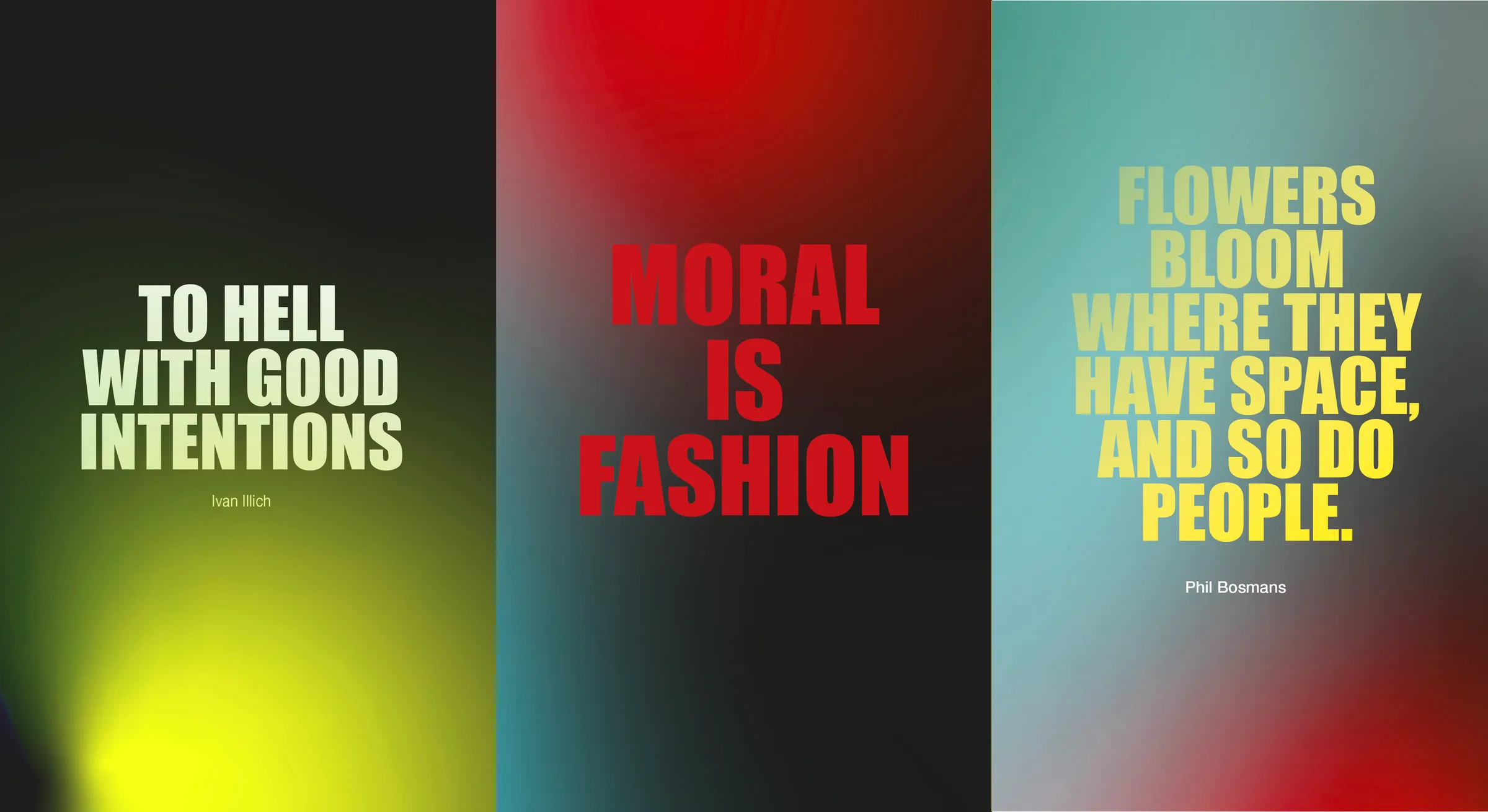Everyone deals with it. Do you take another chocolate? Buy a piece of clothing you already own? Keep scrolling even though you meant to stop long ago? Watch another episode of your favorite series? Or sit behind your computer far longer than you intended?
Temptation or habit often wins over the choices we actually want to make. You hear it all day around you, and the newspapers are full of it. What we can and can’t do anymore if we want to be a “good” citizen. What should we feel guilty about? What’s no longer allowed? No meat. Skip the alcohol. Sugar is taboo. No carbs or dairy. Stop flying. Drive less. Never ski again. Don’t have children. Stop sitting. Cut down on binge-watching. No Facebook. Definitely no TikTok. AI and VR are causing the next digital catastrophe. Forget buying cheap clothes. Stop having packages delivered. Even the bouquet of flowers on the table and the smoke from your barbecue are now suspect.
There’s no law that dictates it, yet a vague alliance of scientists, activists, corporations, politicians, and media traps us in a culture of shame and fear. The result is a society in which those who don’t comply are sidelined, and the creative spirit becomes entangled in herd behavior. We let ourselves be guided by algorithms, talk shows, world news, social media, and everything our smartphones feed us. This is mixed with the morals of our upbringing and that inner voice constantly checking if we’re doing the right thing. That sense of good or bad can offer direction, but it can also suffocate. When judgment weighs too heavily, the fear of standing out or making mistakes takes over. The effect is often obedience. We lose the freedom and courage to make, to experiment, to explore new paths. Making is also thinking.
Today’s designer doesn’t have it easy. We live in a time when physical presence is increasingly under pressure. And by that, I don’t just mean our bodies, but everything we create and leave behind: buildings, objects, everyday items, even art. Everything tangible is viewed with suspicion or deemed unnecessary. We’ve filled the world with things we didn’t strictly need, but that brought us pleasure, comfort, or beauty. Every new addition now seems suspect — an attack on our climate goals and ideals of sustainability. Isn’t it just more pollution, waste, or inequality? The energy that once fueled innovation is being restrained by shame and moral correctness.
And now? Now we’re expected to repair the damage. Reckless ambition is being traded for well-behaved social correctness. From discovery to obedience. From tangible experiment to immaterial caution. Art academies are turning into universities where creativity makes way for measurability, research, and process. We are growing estranged from the physical world, from the courage to make or build something. The great paradox of our time is that we are living longer and becoming more technological, yet we increasingly view our physical existence as a problem. As if the solution lies in disappearing — in dissolving into data, into the immaterial.
How far will it go? No Design? No People? No Stuff, No Fun? The designer seems to be tasked today with creating an invisible world. As if we must erase ourselves to save the planet. But what does that mean? Does the designer become the architect of singularity — the moment when humanity dissolves into data and algorithms? Are we left only with a digital trace, a pile of artificial intelligence without a body? As our physical existence is increasingly seen as a burden, the tension between advancing digitalization and the stubborn physicality of being human grinds harder than ever.
But hey, let’s not lock ourselves into shame or invisibility. Let’s start with not less joy, but smarter joy. Less waste, more beauty. Less stress, more health. Fewer walls, more connection. If we give our creativity space, we can live large without causing large-scale harm. So yes: stay physical, keep making, keep building. Helping the world move forward may not be the easiest challenge, but it’s certainly the most joyful one of our time.


Comments (0)
Share your thoughts and join the technology debate!
No comments yet
Be the first to share your thoughts!